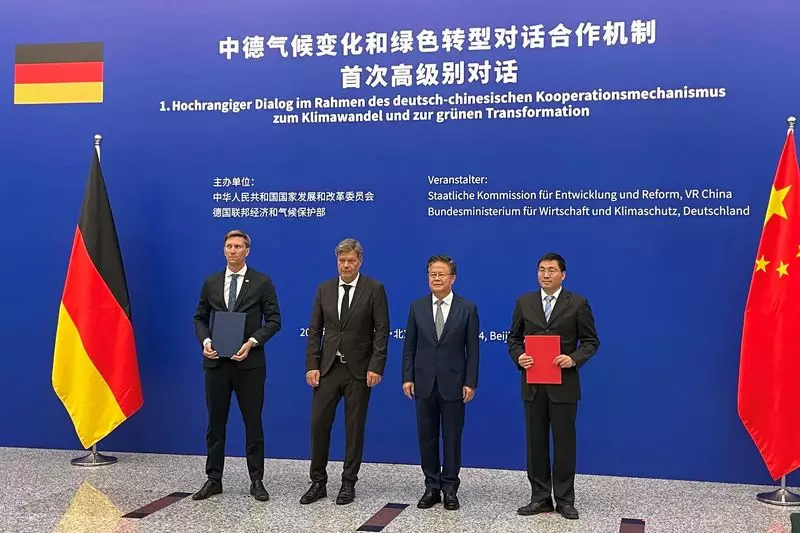During his visit to China, Germany’s Economy Minister Robert Habeck expressed that the European Union is willing to engage in discussions regarding EU tariffs on Chinese exports. He emphasized that the doors are open for dialogue and he hopes that his message was well received by his Chinese counterparts. This assertion came after Habeck’s meetings with Chinese officials in Beijing, marking the first visit by a senior European official since Brussels proposed imposing significant duties on Chinese-made electric vehicles (EVs) in response to what the EU perceives as excessive subsidies.
Habeck emphasized the importance of engaging in a dialogue between the EU and China on tariff matters before the duties take effect in November. He stressed the need for open markets while also advocating for a level playing field. The minister expressed his concerns about proven subsidies that aim to give companies an unfair advantage in exports, stating that such practices cannot be accepted. Additionally, he raised the issue of China’s increasing trade ties with Russia and highlighted how this could adversely impact the economic relationship between China and Germany.
The EU’s provisional duties on imported Chinese EVs are scheduled to be implemented by July 4, with a continuing investigation until November 2, when definitive duties, typically spanning five years, could potentially be enforced. Habeck clarified that the proposed EU tariffs are not intended as punitive measures. He emphasized that the European Commission had thoroughly examined whether Chinese companies had gained unfair benefits through subsidies. The objective of any countervailing duty measure resulting from this review is not punishment but rather a means to offset the advantages granted to Chinese companies by Beijing.
During his discussions with Chinese officials, Habeck highlighted the importance of negotiations, dialogue, and discussions in resolving tariff-related issues. He underlined that the proposed EU tariffs were not akin to punitive measures adopted by other countries but were intended to address unfair advantages enjoyed by Chinese companies. In response, chairman Zheng Shanjie of China’s National Development and Reform Commission affirmed that China would take necessary actions to protect its companies. He refuted accusations of unfair subsidies, attributing the growth of China’s new energy industry to technological prowess, market advantages, and industry supply chains developed through competitive markets.
Minister Wang Wentao of China’s Commerce Ministry assured Habeck that discussions on tariffs would continue with EU Trade Commissioner Valdis Dombrovskis. Habeck expressed optimism about finding common ground through negotiations. However, in the event that a deal is not reached, Chinese carmaker SAIC Group has prepared creative products in response to the potential tariffs, showcasing resilience and innovation in the face of challenges.
Through diplomatic engagement, transparency, and a commitment to fair trade practices, Germany’s Economy Minister Robert Habeck aims to foster productive discussions with China, seeking to address tariff issues while upholding the principles of open markets and equitable competition. The willingness of both the EU and China to engage in dialogue underscores the importance of diplomatic channels in resolving trade disputes and promoting mutual understanding and cooperation.

